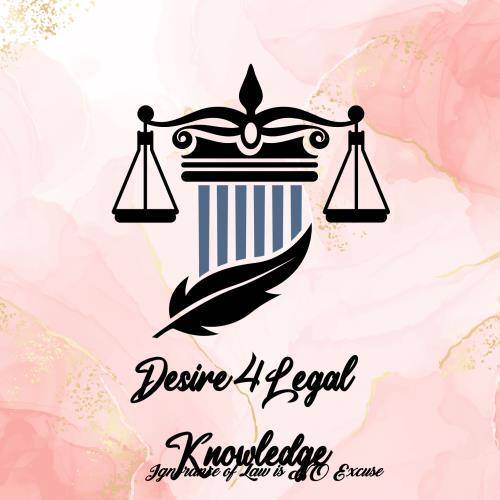How to define an Offer under Indian Contract Act,1872?- free article
Introduction
An offer backed by the acceptance and supported by the consideration forms a valid contract under Indian Contract Act. This shows us that the proposal, the acceptance, and the consideration are the major elements of a valid contract.


Meaning of an Offer
The Indian Contract Act substitutes the word proposal for offer. So, Proposal is defined under Section 2(a) of the Indian Contract Act, of 1872. According to it “whenever a person signifies his intention to do something or to abstain from doing something with the view to obtain the assent of such other person to such an act or abstinence, he said to make a proposal.” Thus, the proposal implies asking someone to do something or not to do something with an intention of convincing that person for the act or abstinence from the act.
To whom can an offer be made?
The Offer can be a specific offer or a general offer. By specific offer, we mean that the proposal is sent to a particular person, and in such case, only the person to whom the proposal is made can accept that proposal. On the other hand, by the general offer, we mean that the proposal is made to the people at large and anyone can accept that proposal.
How can an Offer be made?
According to Section 9 of the Indian Contract Act, the offer can be expressed or can be implied. By the expressed offer we mean that the terms and the conditions of that particular proposal are explained by the offeror using words. By the implied offer we mean that the proposal should be interpreted from the conduct of the offeror.
Now, here before moving further, you should know the meaning of two terms that would be used:-
| Tip: Offeror or promisor- the person making the offer. Offeree or promisee- the person accepting the offer. |
Essentials of the valid offer
- Offer must be capable of creating a legal relationship
- Offer must be certain
- Communication of the Offer
- Made with the view of obtaining the consent.
Offer must be capable of creating a legal relationship.
The proposal should be made with an intention of creating a legal relationship between the two parties binding in the contract. If it does not happen then no party can be made liable for the breach of contract in a court of law.
Case:- Merritt v. Merritt
Facts of the Case:
In Merritt vs. Merritt, the husband and a wife jointly owned a property that was under the mortgage. After the separation, both entered into a contract that if the wife would pay all the value of the mortgage then the husband would give back his part of the property to his wife. But when his wife payed all the money of the mortgage his husband rejected to give back his share of property to his wife. So, the wife brought an action for the breach of contract.
Judgement of the Case:
In this case, this was held that the husband was liable for the breach of contract as the contract in which they entered was made with an intention of creating a legal relationship between both parties, and therefore, the contract was a valid one
| Tip: To know whether the legal intention was present or not, one should see the circumstances in which such a contract was made. |
Offer must be certain:-
The offer so made should be clear and certain. If the proposal is uncertain then it cannot give rise to a valid contract.
Case:- Taylor Vs. Portington
In Taylor vs. Portington, the plaintiff and defendant entered into a contract. The terms of the contract were that A would modernize the house and if B liked it, he would join it as a tenant. In this case, it was held that this contract was an uncertain contract as there was no certainty as to whether B would join as a tenant or not. So, this contract was void.
Communication of the Offer
The proposal made by the offeror should be well communicated to the offeree. If the proposal is not known to the offeree but even, then, he fulfills the condition of the offer then the contract thus formed will not be a valid one. In short, the proposal must be in the knowledge of the offeree.
Case:- Lalman Shukla vs Gauri Dutt
In Lalman Shukla vs Gauri Dutt, the defendant’s nephew absconded from her house. So, she sent her servant (the plaintiff) to find her nephew. As soon as the plaintiff left for searching the boy, the defendant announced that anyone who will find her nephew will be rewarded. The plaintiff ignorant of the announcement made searched the nephew of the defendant and brought him back. But, after a while when he came to know about the announcement he brought an action against the defendant to recover the said money. It was held that there was no valid contract as the plaintiff, although, performing the conditions of the offer, was ignorant of the offer.
The Offer must be made with the view to obtain the consent.
The proposal made should be made with the intention of obtaining the assent of the offeree. If the proposal is not made with the view to obtain the assent, then it violates the definition of the proposal as stated under the Indian Contract Act, of 1872. This will not give rise to a valid contract.
Kinds of offer.
- General Offer
- Specific Offer
- Counter Offer
- Cross Offer
- Standing, open or continuous Offer
General Offer
The offer which is made to the people at large is a general offer. In such a case, acceptance to the proposal can be given by any one or more persons. Acceptance of such a proposal can be expressed or implied.
Case:- Carlill vs. Carbolic Smoke Ball Co.
In Carlill Vs. Carbolic Smoke Ball, the defendant company made an advertisement that anyone who will use their product in the suggested manner and follows the terms and conditions will remain safe from influenza. The plaintiff who followed all the terms and conditions mentioned and used the product in the suggested manner but caught influenza. In an action brought against the company by the defendant, it was held that the plaintiff was liable for the breach of contract as the offer was a general offer and the defendant by following the terms and conditions accepted that offer.
Specific Offer
The offer which is made to a specific person is termed a specific offer. Such a proposal can be accepted by only that person to whom it is made and no one else can give their acceptance to such a proposal.
Counter-Offer
When the offeror makes the proposal to the offeree, but the offeree instead of accepting the proposal gives another offer to the offeror then the offer thus made is called a counter-offer. When the acceptance of the proposal is conditional then also the offer is considered as the counter-offer. The contract formed out of the counter-offer is a void contract.
Case:- Hyde vs. Wrench
In Hyde vs. Wrench, Wrench made an offer to Hyde to sell his estate for 1200 pounds which Hyde rejected. Then Wrench made a final offer to Hyde for selling his estate at the price of 1000 pounds, to which Hyde offered to pay 950 pounds. This offer was rejected by Wrench. Then Hyde accepted the offer to buy his estate at the price of 1000 pounds. Wrench refused this again. Hyde moved an action against Wrench for breach of contract. It was held that Hyde was not liable for the breach of contract as there was no valid offer. There was just a counter-offer that negated the original offer.
Cross Offer
When a proposal is made by two persons to each other obtaining similar terms of the bargain, cross each other in the post, they are known as a cross offer. If no party gives acceptance to such a proposal then there will be no binding contract as there would remain only the proposal again from both the parties and acceptance by none.
Case:- Tinn vs. Hoffman
In Tinn vs. Hoffman, A wrote to B indicating his willingness to sell 800 tons of iron at 69 sh. per ton. On the same day, B wrote the same offer to buy 800 tons of iron at the same price. The letters crossed each other in the post. B brought an action against A for the supply of iron contending it to be a valid contract. It was held that there was no contract between the parties as the offer of neither party was accepted.
Standing, Open, or Continuing Offer
The offer that is allowed to remain open for acceptance over a period of time is known as a standing offer. Offer can be revoked only for the future transactions.
Case: Bengal Coal Co. Vs. Homee Wadia and Co.
In Bengal Coal Co. vs. Homee Wadia and Co., the defendants agreed to supply coal to the plaintiff up to a certain quantity at an agreed price for a period of twelve months. The plaintiff placed orders for the supply of some coal and the same was supplied by the defendants. But before the expiry of the said term, the defendant revoked the offer to supply the coal. The defendant was sued by the plaintiff for the non-performance of the contract. It was held that there was no contract between the plaintiff and the defendant but a standing offer and the defendants were free to revoke the offer for the supply of coal at any time.
How long the offer remains open
The proposal remains open until
- it is accepted
- it is rejected
- it is revoked
- until a reasonable time collapses.
Conclusion:-
To conclude, we can say that a valid proposal also plays a key role in the formation of a valid contract. If the proposal is not valid then the contract will not be valid too. So, the proposal should also be scrutinized to form a valid contract.

